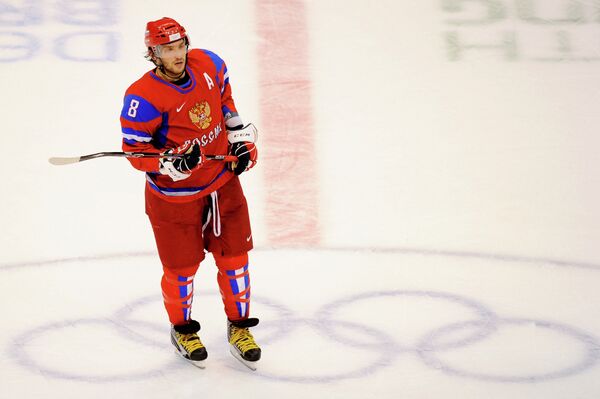MOSCOW, July 19 (R-Sport) - After months of tortuous negotiations with international and Olympic hockey officials, the NHL finally announced Friday that it would allow its players to compete in the 2014 Sochi Olympics.
The long-awaited confirmation of an agreement among the NHL, the International Ice Hockey Federation and the International Olympic Committee is a shot in the arm for the February 12-23 competition, which would have been disastrously watered-down without the participation of the world's top players.
"The decision to participate in the XXII Olympic Winter Games in Sochi was in many ways a difficult one, but one that we know will be well received by our player and, most importantly, by the vast majority of our fans and sports fans everywhere," NHL commissioner Gary Bettman was quoted as saying by NHL.com.
More than 120 NHL players are expected to compete for their respective nations in Sochi.
The NHL will break from the 2013-14 regular season schedule on February 9 and return to play February 26 to allow for participation in the Games.
The break is miniscule in comparison with the Russian-based KHL, which is looking to pause up to 12 days before the start of competition.
Several of Russia’s national team stalwarts, including Alexander Ovechkin, Evgeni Malkin and Pavel Datsyuk, play in the NHL.
It is the fifth-consecutive time the NHL has agreed to release its players for the Olympics, dating back to Nagano in 1998.
Details of the agreement were not disclosed, but the NHL had been insisting it receive broadcasting and media rights to Olympic action in order to market its players on the NHL Network and NHL.com while the league is on hiatus. There have also been concerns surrounding travel from North America and injury insurance that hamepered talks, which stretch back into 2012.
Some club owners had voiced their opposition at losing players to possible injury.
As part of the agreement, seven NHL referees and six NHL linesmen will be work at the men's tournament. The Olympic ice hockey tournament will be played on 60-by-30-meter rinks, bigger rinks than those in the NHL and on a par with the surfaces used in the Russian-based KHL.

